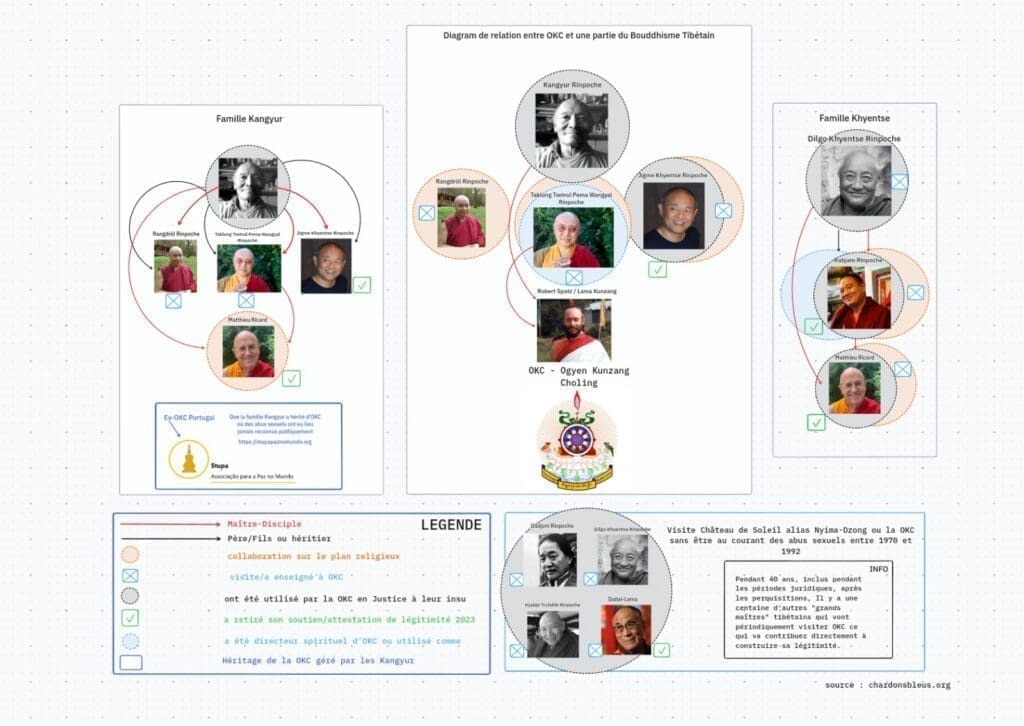Presentation
Context
The cult-like Ogyen Kunzang Chöling (OKC) has enjoyed considerable legitimacy, thanks in large part to its close links with influential figures in Tibetan Buddhism.
These connections, whether the result of direct collaboration or implicit recognition, have contributed to the organization’s respectable image, notably through visits by great masters to OKC Buddhist centers.
Personalities such as Matthieu Ricard and his Master Rabjam Rinpoche (Spiritual Director of the OKC from 1996 to 2023), or even the Dalai Lama via his 1994 attestations of legitimacy, have contributed to this halo of respectability, giving the OKC a credibility that has seduced many followers, without anyone really questioning what was going on behind the scenes.
However, from 1997 onwards, when legal proceedings began to be brought against Robert Spatz and the community for sexual abuse, violence and misappropriation, a deafening silence emerged on the part of the great authorities on Tibetan Buddhism.
Even as clear complaints (1997) and victim accounts (2010, 2017) begin to circulate, few masters have spoken out publicly, and those who have, such as Matthieu Ricard and Jigmé Khyentse Rinpoche, have chosen to minimize the affair or distance themselves from it altogether.
This lack of reaction offered tacit cover to the OKC organization, allowing Robert Spatz to continue wielding his power without significant challenge. (still today)
Almost three decades have passed between the time when the authorities of Tibetan Buddhism were informed of the OKC’s criminal excesses (1997 then 2010) and the very late reactions that only really emerged in 2023, with the broadcasting of the documentary Buddhism, the Law of Silence. During this period, these promoters of altruism and ethics never really took a stand, never questioning their role or the impact of their silence in the face of the crimes committed within the OKC.
This silence has profoundly strengthened the community’s legitimacy in the eyes of followers and society alike, masking the reality of abuse, allowing abuses to continue and OKC to use this legitimacy in court, with supporting documents, including private emails.
This legitimacy, acquired indirectly through the absence of denunciation on the part of influential figures in Tibetan Buddhism, and directly through their interactions with OKC, has enabled the organization to maintain its aura of respectability.
By refraining from intervening, these personalities unwittingly strengthened Spatz’s hold over his victims and the community, demonstrating the extent to which silence in this context was complicit in systematic abuse.

